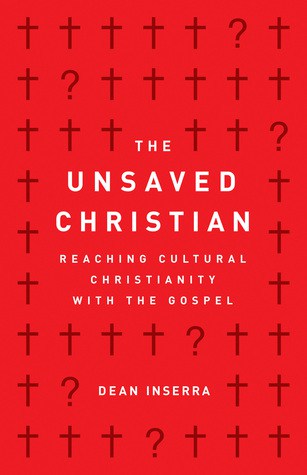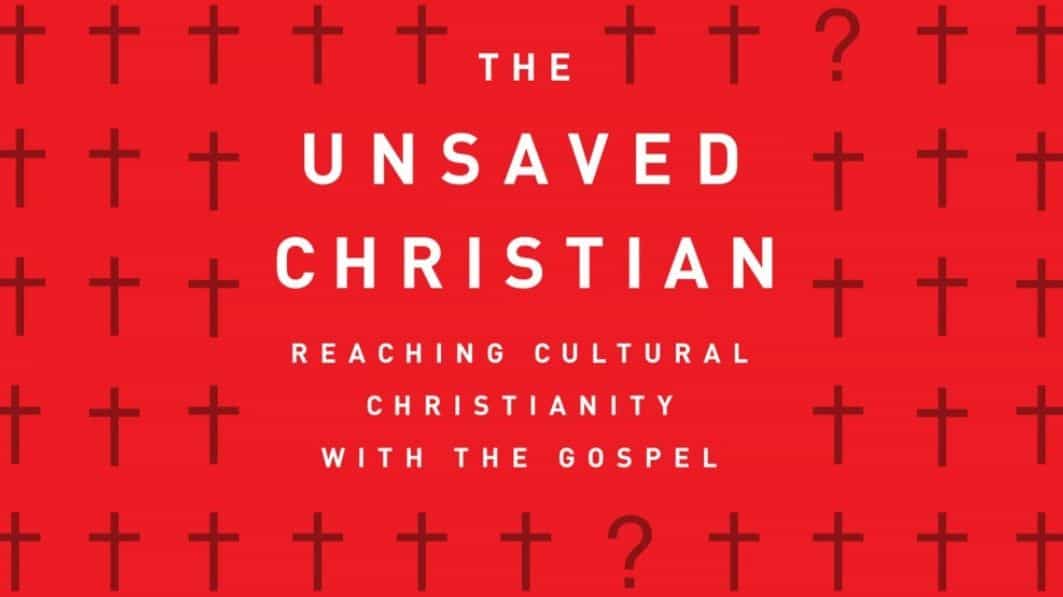In his new book, The Unsaved Christian Pastor Dean Inserra challenges the notion of cultural Christianity and shows those in the local church how to identify and engage with various types of beliefs that have crept into the minds and hearts of those we interact with every day. This is also a guide for pastors to recognize the various types of cultural Christians in their churches every Sunday.
How can we reach those who believe there is a “god” but not the God of the Bible?
This process begins with a realization that it could be very difficult and even offensive. To suggest someone who claims to believe in God doesn’t actually believe in God is quite the tense conversation! We must help people to understand that God is not generic or vague. He is the one true God who has made Himself known to us by His Word and ultimately through Jesus Christ (Hebrews 1:1?2). This is far from an imaginary friend or some kind of “big man upstairs.” If the Scriptures are not the ultimate source for one’s understanding of who God is, it is likely that the god believed in is one constructed by American culture, sentimentality, or personal experience, rather than from true knowledge of God Himself.
How do we fight the lie of “I’m a good person so I’m saved?”
I would argue that the biggest religious belief in America is that “good people go to heaven.” There is no explanation on what it means to be good or exactly what heaven is, but the view still stands. It is hard to reach someone for Christ who believes in Jesus factually or even admires Him but doesn’t really think they need him for their salvation or in everyday life.
I like to call shifting this paradigm “changing the comparison game.” When we compare ourselves to other people we can usually feel pretty good about our morals and ethics. It’s easy to deem yourself righteous when you’re playing by the rules of the suburban standards. However, when we compare ourselves to God, the only response can be that of the tax collector in Luke 18 who cried “God have mercy on me, a sinner” (Luke 18:13). Our standard of what it means to be good changes radically when that standard is God.
Many people are simply “Jesus Admirers” how do pastors reach out and turn these people into “Jesus Followers?”
I think we need to be crystal clear about what the Gospel is and what it is not. Culture can sometimes view it as negative to talk about what you’re “against” rather than what you’re “for.” When, to proclaim the Gospel in truth and love, we must preach both. Many believe that a vague association with Jesus is the summation of Christianity but Jesus never asked to be admired, he called people to pick up their cross and follow him (Matt. 16:24-26). Fostering an admiration of Jesus without that admiration leading to repentance is nowhere near the saving faith described in the Scriptures. It reminds me of those in the crowd of 5,000 who were excited to receive a meal of bread and fish from Jesus but were completely absent from the scene when it came to following Him. We must lead people to see that salvation is free, but following Jesus is never cheap.
What are concrete ways for pastors to start conversations with cultural Christians?
I have learned that the best entryway to conversations is to ask basic questions about one’s faith. These are not “gotcha questions,” or even anything remotely combative. Rather, they can serve as simple avenues into conversation. I usually say something along the lines of, “I’ve realized that I have never asked you anything about your faith before. I know you claim to be a Christian, tell me about how you came to believe the Gospel?” You may be shocked over the answer you receive, as it will likely have nothing to do with Jesus Christ, whatsoever. Once the common ground is broken, a wide door of conversation can open.
What obstacles are in the way of Cultural Christians realizing that they aren’t true believers and how do we overcome them?
There are four primary obstacles:
- Belief
Cultural Christians believe in God, Jesus, and the Bible. Yet, they espouse completely different definitions to those words than orthodox Christians do, making those preconceived beliefs strong barriers.
- Morals
Cultural Christians believe they are great people. Why would one see the need to be forgiven of sins they don’t think they are truly guilty of?
- Heritage
For families with a long legacy of church attendance and praying before meals, it’s not a stretch to claim “Christian” as an identity marker. The idea of following God is simply a cultural hallmark of their family unit and may have very little to do with the saving work and person of Christ in the lives of individuals.
- Ignorance
Many cultural Christians simply don’t know that the Christianity they claim has nothing to do with what is presented in the Bible. They believe the only difference between themselves and actual Christians is that their friends who truly follow Christ are just “really religious.”
You mentioned in your book that cultural Christians are only a generation or two away from Gospel believing Christians. How can our pastors encourage parents and structure our children’s ministries to avoid this?
Pastors cannot create a culture where becoming a believer is a rite of passage, rather than a truly convictional act. The church practice and mindset where a Gospel presentation is merely “who wants to go to heaven when you die, okay great, pray this prayer a fter me” is not a true Gospel presentation at all. The primary reason we are a generation away from losing the Gospel is because while grandma and grandpa are part of a local church, their adult children and grandchildren are not. How can generations be away from the church and we expect true knowledge of God to go forth in that family?
What’s a good way of combating the mentality of “once saved, always saved” that many cultural Christians hold on to from “committing their lives to Jesus” as a child?
I think we have to help people understand that it is not the unpardonable sin to question someone’s salvation. In certain Christian tribes and denominations, convincing someone they are saved seems to be more important than making sure they actually are saved. We must make sure the reason people are secure in their salvation is only because of the work of Jesus on their behalf, rather than an activity or religious accomplishment on their part (Matthew 7:21?23). My best advice is not to be in a rush. Yes, immediately create a Gospel culture in your home where the name of Jesus is regularly part of the family conversation, but don’t rush a decision. Jesus said for the children to come to Him. Let’s do everything we can to make sure it is Him they are truly approaching, rather than following a prescribed rite of passage.
How can pastors fight the idolization of America in their churches?
I believe that gratefulness is a Christian posture and based on the many blessings we have as Americans, Christians should be the first to give thanks. That is far different from having worship services that center around the American flag and patriotism. An important question to ask pastors that push a “God and country” type approach to ministry is, “how would your beliefs about this change if you moved to Argentina, Poland, or Canada tomorrow?” It is troubling to see how much patriotism is intertwined with their version of Christianity which inevitably leads to partisan politics shifting into focus. Patriotism should simply equate to gratefulness for the Christian, not an intermingled American and Christian faith.
How should we engage with religion and repentance in the South?
We need to see it for what it is: a completely different religion than biblical Christianity. Cultural Christianity is not a discipleship issue, but rather an evangelism issue. When we understand that the people we are dealing with are lost from the fold of God, there is far more capacity for compassion and even a sense of urgency in the church to speak life into this false religion.
About the Book:
Whether it’s the Christmas and Easter Christians or the faithful church attenders whose hearts are cold toward the Lord, we’ve all encountered cultural Christians. They’d check the Christian box on a survey, they’re fine with church, but the truth is, they’re far from God. So how do we bring Jesus to this overlooked mission field?
The Unsaved Christian equips you to confront cultural Christianity with honesty, compassion, and grace, whether you’re doing it from the pulpit or the pews.
If you’ve ever felt stuck or unsure how to minister to someone who identifies as Christian but still needs Jesus, this book is for you.






















